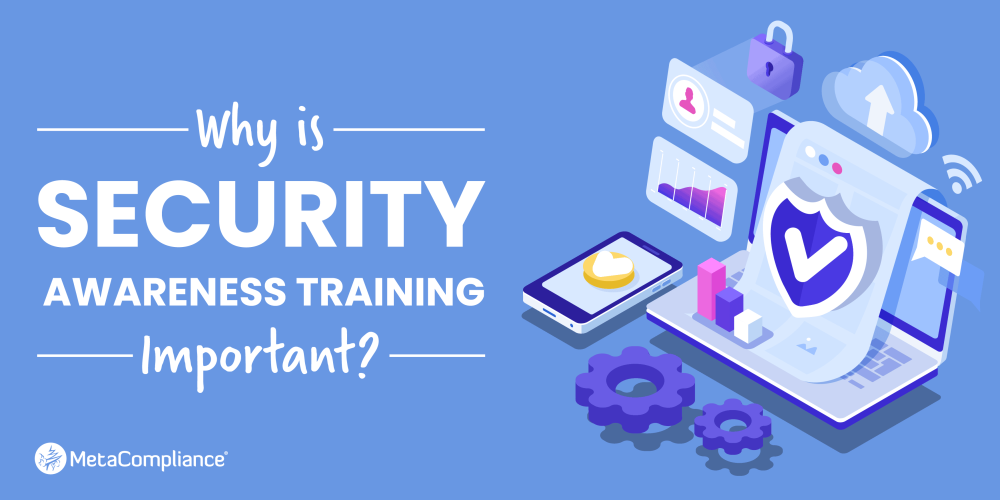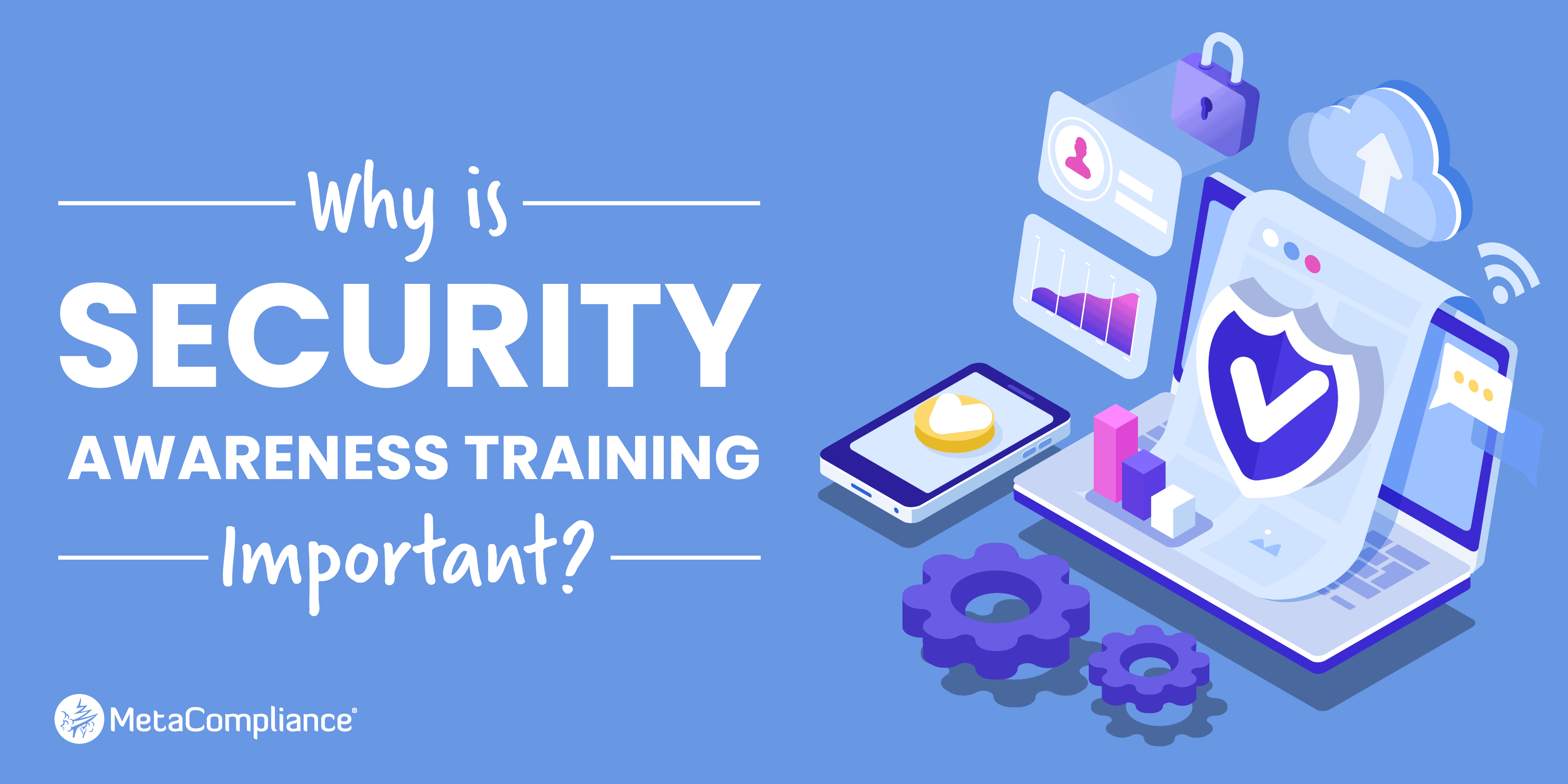
Why Is Cybersecurity Awareness Training Necessary?
If you've ever wondered why cybersecurity awareness training is necessary, you're in the right place! In this article, we'll delve into the importance of staying vigilant online and how proper training can help protect you from cyber threats. So, get ready to dive into the world of cybersecurity and discover why knowledge truly is power!
Did you know that the internet can sometimes be a wild and unpredictable place? With hackers, viruses, and scams lurking around every digital corner, it's crucial to understand the importance of cybersecurity awareness training. By learning about potential online dangers and how to defend against them, you can keep your personal information safe and secure.
Cybersecurity training isn't just for computer geniuses or tech whizzes. It's for everyone who uses the internet, from kids to adults. Think of it as a superpower that equips you with the tools and knowledge to outsmart cybercriminals. So, grab your cape and join us as we explore the fascinating world of cybersecurity awareness training and why it's absolutely necessary in our digital age. Let's get started!
Cybersecurity awareness training is essential in today's digital landscape. With the ever-evolving threats, organizations need to educate their employees about potential risks and how to mitigate them. By providing training, employees can recognize phishing attempts, identify vulnerabilities, and adhere to security best practices. This empowers organizations to create a culture of security and reduces the likelihood of breaches and data leaks. Cybersecurity awareness training is a proactive approach that bolsters the overall security posture of an organization.

Why is Cybersecurity Awareness Training Necessary?
Cybersecurity is a critical concern in today's digital age. With the increasing prevalence of cyber threats and the potential risks they pose to organizations and individuals, it is essential to prioritize cybersecurity awareness training. This article will delve into the reasons why cybersecurity awareness training is necessary, exploring the benefits, the difference it can make in preventing cyber attacks, and providing tips for implementing effective training programs.
The Importance of Cybersecurity Awareness Training
Cybersecurity awareness training plays a vital role in safeguarding organizations and individuals from the ever-evolving landscape of cyber threats. In today's interconnected world, where technology permeates every aspect of our lives, cybercriminals are constantly devising new and sophisticated methods to exploit vulnerabilities. By increasing awareness and knowledge about cybersecurity best practices, individuals and organizations can take proactive measures to identify and mitigate potential risks.
The Benefits of Cybersecurity Awareness Training
Cybersecurity awareness training offers a plethora of benefits, both for organizations and individuals. Firstly, it empowers employees and individuals with the knowledge and skills to recognize and respond to potential cyber threats. By understanding the telltale signs of phishing emails, malware, or other forms of cyber attacks, individuals can avoid falling victim to these scams. Additionally, training programs help in fostering a security-conscious culture within organizations, where every employee becomes a vigilant defender of sensitive data.
Furthermore, cybersecurity awareness training helps organizations comply with regulatory requirements. Many industries, such as healthcare or finance, have stringent data protection regulations that organizations must adhere to. By providing comprehensive training on data privacy laws and best practices, organizations can ensure compliance and avoid hefty fines or reputation damage due to data breaches.
Lastly, cybersecurity awareness training can significantly reduce the financial impact of cyber attacks. A recent study by the Ponemon Institute found that the average cost of a data breach is over $3.8 million. By investing in training programs that educate employees on cybersecurity best practices, organizations can minimize the risk of successful attacks, saving substantial financial resources in the long run.
Implementing Effective Cybersecurity Awareness Training Programs
To ensure the effectiveness of cybersecurity awareness training programs, organizations need to adopt a comprehensive and strategic approach. Here are some essential tips for implementing successful training programs:
- Identify and prioritize training needs: Conduct a thorough assessment of the organization's security vulnerabilities and tailor training programs to address those specific needs.
- Create engaging and interactive content: Use a variety of training methods, such as videos, quizzes, and simulations, to keep participants engaged and enhance knowledge retention.
- Maintain regular training sessions: Cyber threats evolve constantly, so it's crucial to provide ongoing training to keep employees up to date with the latest trends and best practices.
- Promote a culture of cybersecurity: Encourage employees to take responsibility for their role in maintaining cybersecurity by reinforcing the importance of following protocols and reporting suspicious activities.
- Measure the effectiveness of training: Regularly assess the impact of training programs through metrics such as incident response times, employee feedback, and the number of reported incidents.
The Positive Impact of Cybersecurity Awareness Training
By taking cybersecurity awareness training seriously, organizations and individuals can make a substantial difference in safeguarding sensitive information and mitigating cyber risks. With the constantly evolving nature of cyber threats, staying proactive and embracing a security-conscious mindset is crucial in the ongoing battle against cybercrime. So, prioritize cybersecurity awareness training and empower yourself and your organization to navigate the digital landscape securely.
Key Takeaways: Why is cybersecurity awareness training necessary?
- Cybersecurity awareness training helps you protect your personal information and avoid falling victim to online scams or attacks.
- By understanding the risks and best practices, you can make informed decisions when using technology and stay safe online.
- Training empowers you to recognize phishing emails, suspicious links, and other common tactics used by cybercriminals.
- Stay updated with the latest security threats and learn how to prevent them, minimizing the chances of a successful attack.
- Every individual plays a role in maintaining a secure digital environment, and cybersecurity awareness training helps create a strong defense against cyber threats.
Frequently Asked Questions
Cybersecurity awareness training is essential in today's digital world to protect individuals and organizations from cyber threats. Below are some commonly asked questions about why cybersecurity awareness training is necessary.
Q: How can cybersecurity awareness training benefit individuals?
Cybersecurity awareness training provides individuals with the knowledge and skills necessary to protect their personal information and online identity. It helps them understand the various types of cyber threats, such as phishing attacks and malware, and teaches them how to recognize and respond to these threats effectively. By undergoing cybersecurity awareness training, individuals can become more cautious and proactive in safeguarding their digital lives. This training also enables them to develop good security habits, such as regularly updating software and using strong passwords, which can go a long way in preventing cybercrimes.
Moreover, cybersecurity awareness training empowers individuals to protect themselves against online scams and identity theft. It equips them with the ability to identify suspicious links, emails, and requests, reducing the risk of falling victim to cybercriminals who aim to steal personal information or financial data. By staying informed about the latest cyber threats and practicing safe online habits, individuals can enhance their overall cybersecurity posture and minimize the chances of becoming a victim.
Q: Why is cybersecurity awareness training important for organizations?
Cybersecurity awareness training is crucial for organizations as it strengthens their defense against cyber attacks and helps mitigate the risk of data breaches. By educating employees about the importance of cybersecurity and the potential vulnerabilities they face, organizations can create a culture of security awareness. Employees become the first line of defense against cyber threats, and with proper training, they can identify and report suspicious activities promptly.
Furthermore, cybersecurity awareness training helps organizations comply with industry regulations and standards. Many regulatory frameworks, such as the General Data Protection Regulation (GDPR) and the Payment Card Industry Data Security Standard (PCI DSS), require organizations to provide training on data protection and cybersecurity. By conducting regular cybersecurity awareness training sessions, organizations can ensure compliance, reduce the risk of penalties, and maintain a strong security posture.
Q: Are there any financial benefits of cybersecurity awareness training?
Yes, there are financial benefits associated with cybersecurity awareness training. Implementing cybersecurity measures, such as training employees, can significantly reduce the financial impact of cyber attacks. According to studies, organizations that have robust cybersecurity awareness programs in place experience lower financial losses compared to those without such programs.
By training employees to identify and report phishing attempts, prevent ransomware attacks, and follow secure practices, organizations can minimize the risk of data breaches and the subsequent financial damage. Additionally, cybersecurity awareness training reduces the likelihood of business interruptions caused by cyber incidents, allowing organizations to save on costly downtime, recovery, and reputational damage. Investing in cybersecurity awareness training is not only a proactive measure to protect sensitive data but also a cost-effective approach to safeguarding the financial health of an organization.
Q: How often should cybersecurity awareness training be conducted?
The frequency of cybersecurity awareness training depends on various factors, such as the size and nature of the organization, the existing threat landscape, and the industry regulations. Generally, it is recommended to conduct cybersecurity awareness training at least annually. However, for organizations with higher security risks or those operating in highly regulated industries, more frequent training sessions may be necessary.
It is important to note that cybersecurity threats evolve rapidly, and new attack techniques emerge constantly. Therefore, organizations should consider providing ongoing and up-to-date training to ensure employees are equipped with the latest knowledge and skills to combat cyber threats. Regularly reinforcing cybersecurity best practices and providing targeted training based on emerging threats can help organizations maintain a strong security posture and effectively mitigate the risk of cyber attacks.
Q: How can cybersecurity awareness training positively impact the overall security of an organization?
Cybersecurity awareness training positively impacts the overall security of an organization by creating a well-informed and vigilant workforce. Training employees about the latest cyber threats and attack techniques helps them recognize potential risks and respond appropriately. With a well-trained workforce, organizations can prevent many cyber incidents from occurring in the first place or minimize the impact if an incident does occur.
Moreover, cybersecurity awareness training cultivates a security-conscious organizational culture. It encourages employees to adopt security best practices not only at work but also in their personal lives. This increased awareness and vigilance extend beyond the workplace, reinforcing secure habits and reducing the overall risk of cyber threats. By fostering a strong security culture, organizations can significantly enhance their resilience against cyber attacks and create a safer digital environment for all stakeholders.
Summary
Cybersecurity awareness training is important to keep our personal information and online activities safe. It helps us understand the risks and how to protect ourselves.
When we are aware of cyber threats, we can recognize phishing emails, use strong passwords, and avoid clicking on suspicious links. By learning about cybersecurity, we can become responsible digital citizens and prevent online attacks. So, let's stay informed and protect ourselves in the digital world!
Recent Posts
- How Does GPON Improve Network Efficiency?
- What Are The Advantages Of GPON?
- What Are The Benefits Of IT Outsourcing?
- What's The Deal With Ransomware Attacks?
- Are GPON Providers Widely Available?
- What's GPON's Impact On Bandwidth?
- Why Is Multi-Factor Authentication Important?
- How To Ensure Data Privacy Compliance?
 Blogs
Blogs Infographics
Infographics Videos
Videos Podcasts
Podcasts Case Studies
Case Studies Call For Quote
Call For Quote